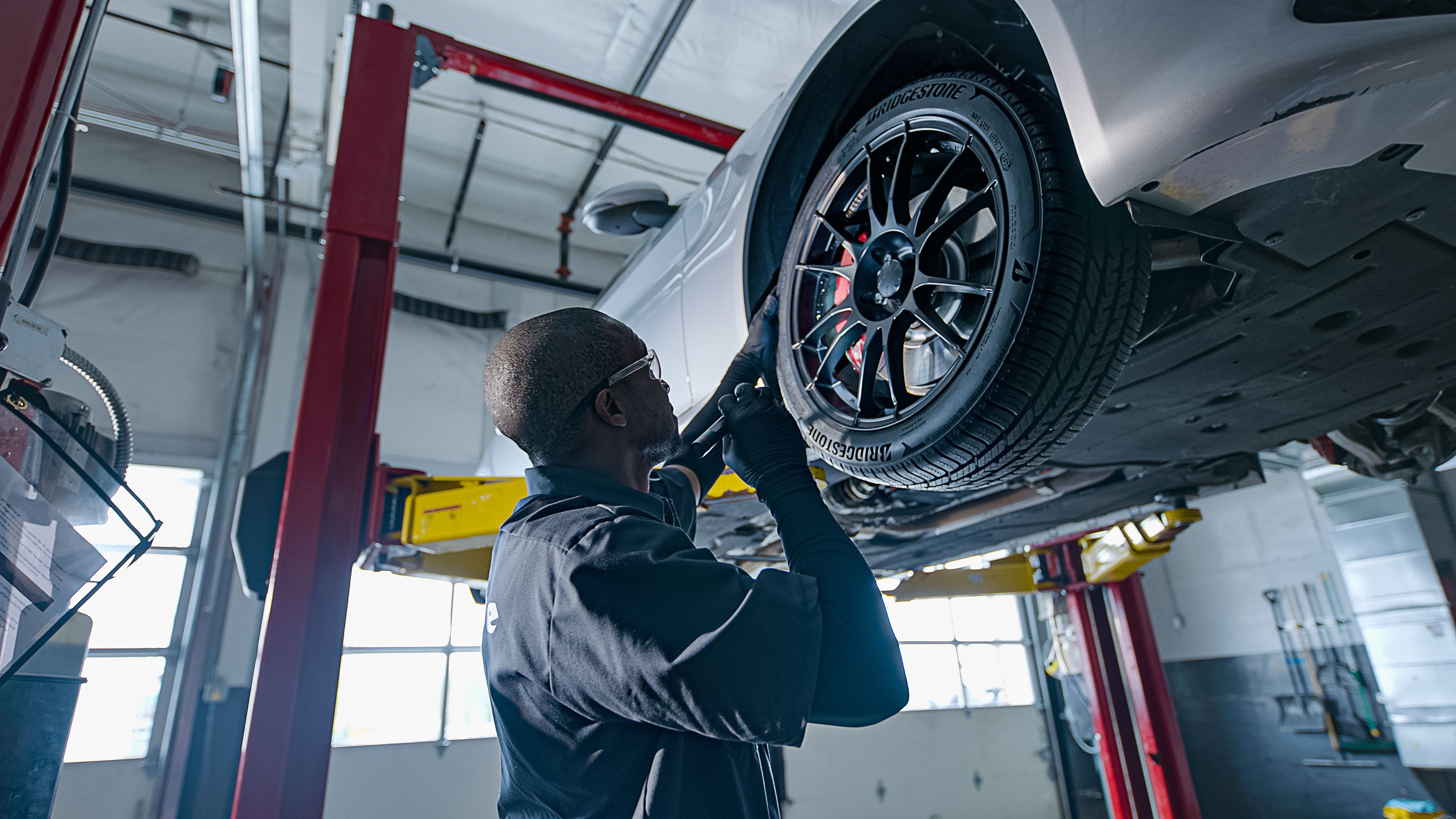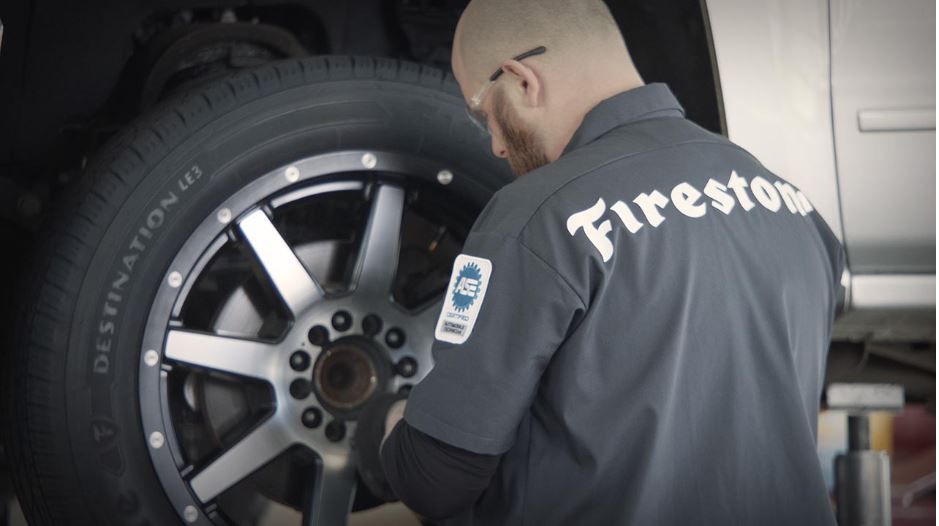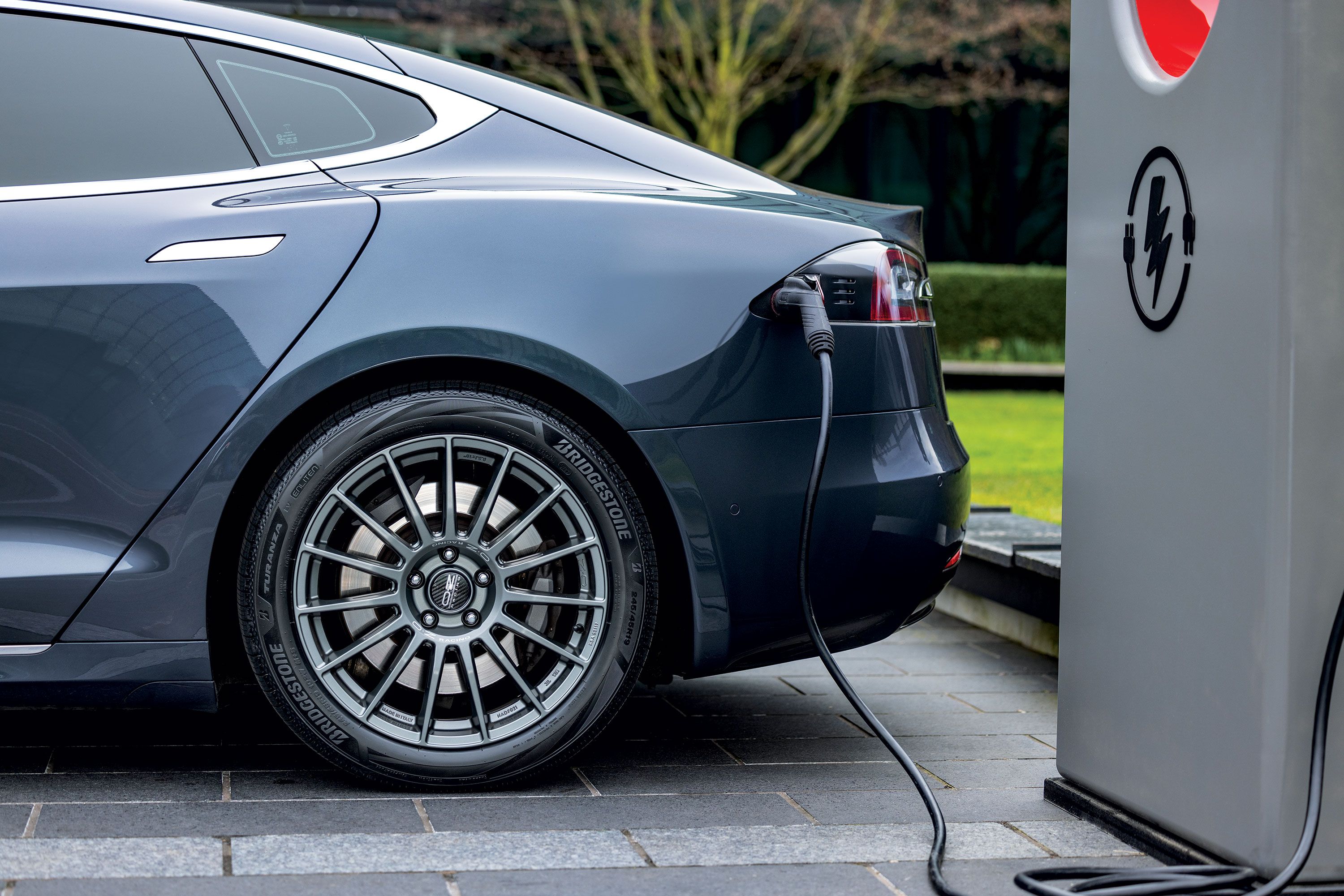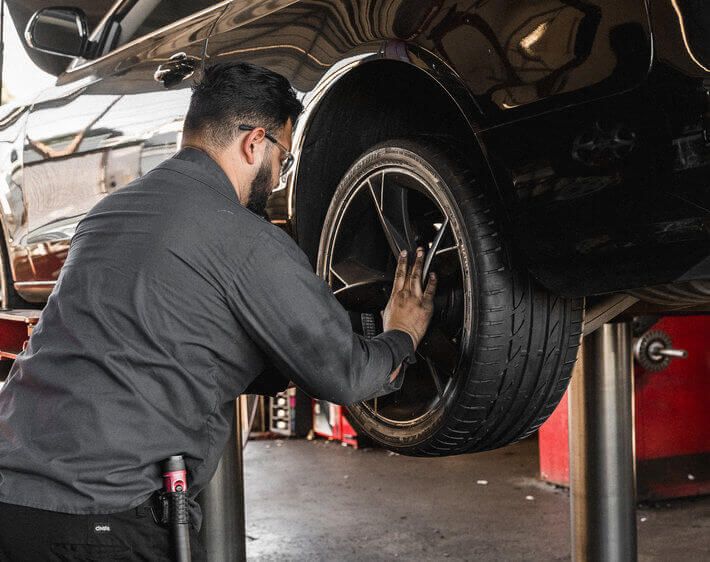As a responsible car driver, you know that regular vehicle maintenance is essential for keeping your car in top shape. But amidst oil changes, brake checks, and coolant top-offs, it’s easy to overlook a crucial element of vehicle health: tire rotations. You’ve probably heard that neglecting tire rotations isn’t the best idea, but how crucial are they, really?
Read on to learn everything you need to know about tire rotations — from what they are and why they matter to how to tell if tires need to be rotated.
What is a Tire Rotation Service?
Even on a properly aligned vehicle, tires can wear at different rates. Front tires tend to wear faster than rear tires since they’re responsible for turning and usually does most of the braking. And often, your two front tires may wear differently from each other due to driving habits. Even something seemingly insignificant, like taking more left turns than right turns during your daily commute, can result in uneven tire wear.
To compensate for this uneven wear, tire rotations should be performed. Simply put, a tire rotation involves moving your car’s tires from one position to another, typically in a specific manufacturer-recommended rotation pattern. Shuffling your tires around ensures they can wear in different areas after each rotation, which minimizes thin spots, extends the lifespan of your tires, and improves overall handling and safety.
What Happens if You Don’t Rotate Your Tires?
Even though we recommend that you rotate your tires at regular intervals, it’s good to be curious! Besides, a technician can possibly inspect your tires and their treadwear to help catch other potential issues early.
So, what exactly could happen if you don’t rotate your tires? Likely, uneven wear would occur, which could cause a whole host of problems like:
Decreased Tire Longevity
Imagine that you’re digging a hole. If you were to dig in a small radius, you could create a very deep hole quite rapidly. But if you were to expand the area you’re digging out, it would take you much longer to reach the same depth. The same premise applies to uneven tire wear. When a smaller area of the tire is being worn, it can fail sooner than if you were riding on the whole surface of the tire.
Increased Costs
You might think that adding tire rotations to your maintenance schedule would be more expensive than not performing them at all. But if your tires are wearing unevenly, you’re leaving tread on the table. You’ll likely need to replace them more frequently, which can be more costly in the long run.
Reduced Performance
If you’ve ever run in a pair of worn-out tennis shoes, you know that it’s not comfortable or ideal for performance. In the same way, your vehicle probably won’t perform its best on unevenly worn tires. You might notice a reduction in your vehicle’s handling or performance..
Safety Risks
Most importantly, riding on unevenly worn tires can compromise your safety. They’re more prone to going flat and leaving you stranded, or even worse, blowing out and causing an accident.
Signs You Need a Tire Rotation
- It’s Been a Long Time: If you’re wondering how often you need a tire rotation, you should check your owner's manual for rotation guidelines. But if you can’t find your manual, the National Highway Safety Administration recommends having your tires rotated every 5,000 to 8,000 miles — or sooner if uneven wear appears. If you’ve driven that far and haven’t had a tire rotation, it might be time to consider one!
- Uneven Tire Wear: Inspect your tires. If you notice that any tires are more worn than others or have odd wear patches, it’s probably time to have them rotated. Patchy tire wear often means that your tires are out of balance — another potential sign your vehicle needs a tire rotation. Fortunately, a Firestone technician can check and correct your tire’s balance if needed.
- Vehicle Vibration: Unusual vibrations while driving can be a sign that your tires need to be rotated. This is because as your tires wear, your wheels can become unbalanced and result in vibration as they spin. Generally, this vibration is more noticeable at higher speeds.
- Handling Issues: If you notice that your vehicle is less responsive, doesn’t grip the road like it used to, or is hydroplaning (losing traction on wet surfaces), it could be due to uneven wear or tread loss.
Need Your Tires Rotated?
Don't overlook the importance of tire rotation in maintaining your vehicle's health and performance. When the time comes for your next rotation, head to your local Firestone Complete Auto Care for professional tire rotations and a range of tire services. Plus, explore the Firestone App to effortlessly stay on top of your vehicle's maintenance schedule. Schedule an appointment today and keep your tires and vehicle in tip-top shape!



